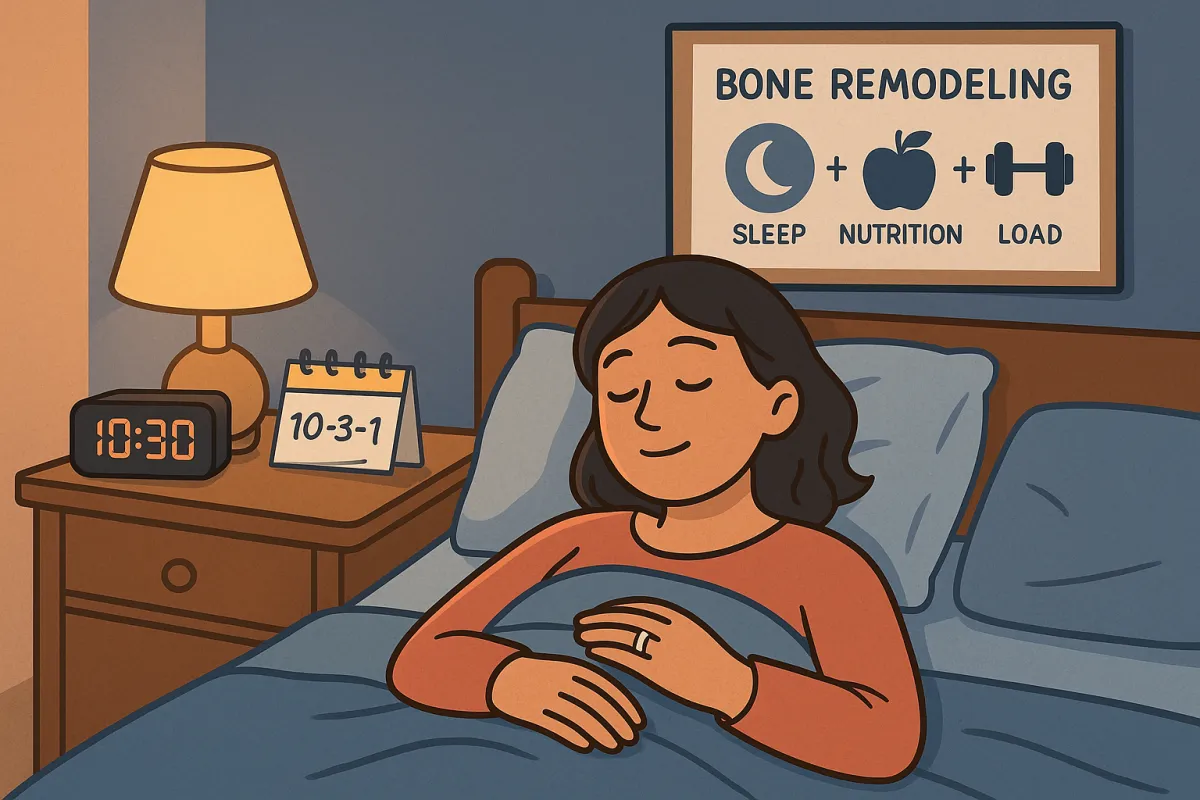
Why Sleep Matters for Your Bones (and How to Get More of It)
We all know sleep is essential — for energy, mood, immune function… but did you know that poor sleep can also weaken your bones?
That’s right: your skeleton does a lot of behind-the-scenes repair while you sleep. If you're not getting enough deep, high-quality rest, your body may struggle to keep up with bone turnover, especially as you age.
How Sleep Supports Bone Health
Sleep isn't just a break from the day — it’s when your body shifts into repair mode. That includes:
Bone remodeling: The process of breaking down old bone (by osteoclasts) and building new bone (by osteoblasts) happens while you sleep.
Hormone regulation: Growth hormone, melatonin, and other bone-supportive hormones are released at night.
Inflammation control: Chronic sleep loss can raise cortisol and inflammatory markers — both of which interfere with bone-building.
One large study found that postmenopausal women who slept less than 5 hours a night had significantly lower bone mineral density compared to those who slept 7 or more hours. Even just one bad night can impact bone turnover markers.
Trouble Sleeping? You’re Not Alone.
Many adults — especially midlife women — struggle with falling or staying asleep due to stress, hormonal changes, nighttime waking, or just poor habits around screens and bedtime routines.
But there’s good news: small changes can make a big difference — especially when done consistently.
Try the 10-3-2-1-0 Rule
Popularised by productivity coach Craig Ballantyne, this simple sleep strategy helps you create a buffer zone between stimulation and sleep:
10 hours before bed – Stop caffeine
3 hours before bed – Finish eating and avoid alcohol
2 hours before bed – Stop working
1 hour before bed – Turn off screens
0 – The number of times you hit snooze in the morning
This method isn’t rigid — but it gives your body time to unwind and switch into sleep mode naturally.
Use a Reverse Alarm
Rather than waiting for a morning alarm to jolt you awake, set an evening "reverse alarm" as a gentle reminder that it’s time to wind down.
This could be a soft chime on your phone, a dimming of smart lights, or even an actual alarm that says “Start your bedtime routine.” It shifts your mindset from go-go-go to rest-and-repair.
Track It to Improve It
You can’t improve what you don’t measure — and sleep is no different.
Wearable trackers like the Oura Ring, Whoop, Apple Watch, or Fitbit can give you powerful insights into your sleep quality. These devices track:
Time spent in light, deep, and REM sleep
Heart rate variability (a marker of recovery)
Sleep consistency and readiness scores
Over time, this data can help you connect the dots between your habits and your sleep — and dial in a routine that actually works for you.
Just remember: these tools are guides, not grades. Use them to stay curious, not stressed.
Final Thought
Sleep is often the missing link in bone health — overlooked but absolutely essential.
Without enough restorative sleep, your body can't rebuild bone effectively, even if you're doing all the right things during the day.
So treat sleep like the bone-building tool it is: create space for it, protect it, and track it if needed.
Your bones (and the rest of your body) will thank you.
